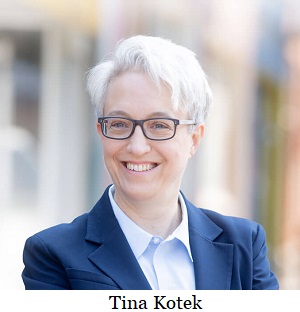 Post an Event
Post an Event
| TILLAMOOK COUNTY FAIR - 100 YEARS OF PIG N'FORD |
| Wednesday, August 6, 2025 at 10:00 am |
| The Tillamook County Fair received its recognition as one of the top ten Blue Ribbon Fairs in the nation due to its uniqueness; offering so much for fairgoers to enjoy free along with their paid admission. Fairgoers can enjoy all of the Open Class and 4-H/FFA exhibits that Tillamook County residents have prepared the year prior, free entertainment and concerts, live exotic animal displays, and a whole lot more!
FOR MORE INFORMATION
tillamookfairoffice@gmail.com
(M-F, 8 AM-5 PM) at (503) 842-2272.
Reminders:
NO OUTSIDE FOOD OR DRINK
All bags are subject to search
For the safety of all present, only trained service animals are permitted to enter Fairgrounds property. A trained service animal is any guide dog, signal dog, or other animal individually trained to do work or perform tasks for people with disabilities. |
| 4603 East 3rd Street
Tillamook, OR, 97141 |
“You’ll be paying more with higher prices on everything”
Oregon Representative E Warner Reschke (R-Crater Lake) answers: “What is Measure 118?”
“Measure 118 will be one of several ballot measures on your ballot this November. Put simply, Measure 118 is a tax, another tax. Whenever a new tax is introduced into Oregon’s economy, it means you will pay more for the things you buy, period.
“Measure 118 tries to fool you by claiming you’ll get a check from the government. “Pass 118 and get money,” is the pitch. Sounds great, right? But Measure 118 is the classic bait & switch. As my Dad used to say, “There is no such thing as a free lunch, someone always pays.” In this case, that is you — you’ll be paying more with higher prices on everything."
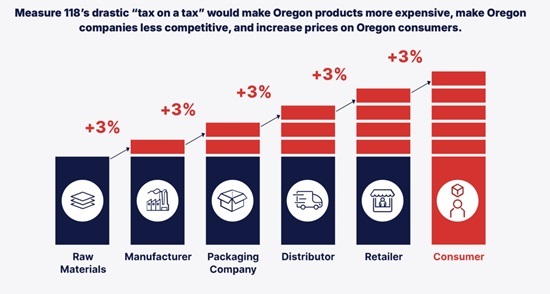 How Measure 118 Works
How Measure 118 Works
“Measure 118 is like going to your favorite cafe to buy a coffee for $5. Pass Ballot Measure 118 and you could get money back from the government, but now the coffee’s price will increase and could be $8, or higher. But it won’t just be coffee’s price going up — everything will go up! What’s worse is Measure 118 is not just a tax, but a tax on a tax!
“Measure 118 will tax businesses on their gross revenue, not their profits. That means you won’t be taxed directly, but indirectly through higher prices everywhere. When your gas station, your utilities, your grocery store, your coffee shop, your home improvement store, your doctor’s office, your delivery service (Door Dash, Amazon, Fed Ex, UPS, etc), your bank, your cell phone service, your home and auto insurance, your beer or wine, your prescriptions and your fast food restaurant all have their taxes go up, they pass that cost along to you. Furthermore, if they use electricity or fuel to keep the lights and get supplies to their location, those additional costs will also get passed along to you.
“This tax is called a gross receipts tax; it is the worst kind of tax for businesses because even if the business is losing money, it will incur these new tax costs directly or indirectly — and pass them along to you.
“Gross receipts taxes discourage businesses from coming to Oregon, for start-ups to find their footing and for current businesses to expand. That means fewer jobs in Oregon; that means less opportunities for Oregonians. That’s why both Democrat and Republican lawmakers are opposed to Measure 118.
A D V E R T I S E M E N T

A D V E R T I S E M E N T
“As Oregonians try to recover from high inflation, Measure 118 will breathe new life into further increasing prices on nearly everything you buy. Don’t Be Fooled. Oregonians Don’t Deserve Higher Prices!”
For more information visit the
No On Measure 118 website.
--Donna Bleiler| Post Date: 2024-08-14 18:33:15 | Last Update: 2024-08-14 19:20:24 |
Hoyle Signs Old Growth Pledge, Ignores Bipartisan Legislation to Reduce and Prevent Annual Wildfires
As dozens of wildfires burn, smoke spreads, and emergencies are declared, fourth District Candidate for Congress Monique DeSpain criticized incumbent Congresswoman Val Hoyle’s leadership failure to deliver wildfire prevention after nearly two years in Congress. Oregon's fourth Congressional District contains Eugene and the Southern Oregon Coast region.
“Another year brings us another season of choking on smoke from wildfires. Everyone supports doing more to fight these fires, but voters in the Fourth District have had enough of the excuses for failing to diminish and end these annual wildfire emergencies, which are both predictable and preventable,” stated DeSpain. “In a district that is 85% forestland, of which half of it is federally-managed and
where so many of these fires burn out of control every year, our current federal representative, Congresswoman Val Hoyle, hasn’t led in delivering the urgent, proactive, transformative solutions that we need. I will.”
HR 8790 Fix Our Forests Act is comprehensive, bipartisan legislation designed to restore forest health, increase resiliency to catastrophic wildfires, and protect communities by expediting environmental analyses, reducing frivolous lawsuits, and increasing the pace and scale of forest
restoration projects. The Act presents desperately needed solutions that would expedite progress under the National Environmental Policy Act of 1969 and improve forest management activities on
National Forest System lands, on public lands under the jurisdiction of the Bureau of Land Management, and on Tribal lands to return resilience to overgrown, fire-prone forested lands, and for
other purposes.
A D V E R T I S E M E N T

A D V E R T I S E M E N T
“I am at heart an environmentalist who values our state's beautiful natural ecosystems and its abundant resources. I know that what is happening now, and for the last several years, is not good for the environment nor for any of us living creatures who live in or near our forests. The truth is; either we act now to harvest the timber and underbrush, which serves as a powerful fuel load for
these wildfires, or we breathe the timber later as wildfire smoke every year. We must act now to improve overall forest health, which would have the added positive benefit of producing revenue for our local economies and communities that are desperate for law enforcement, school funding, and other basic community resources. This is why I will work with anyone from any party starting on Day
One by supporting bipartisan bills like H.R. 8790, the Fix Our Forests Act,” added DeSpain.

Widely recognized as a vulnerable Democrat in her reelection campaign, Congresswoman Hoyle has announced that she is
skipping the Democratic National Convention later in August in order to remain in Oregon because “Wildfires are getting worse out here and working this is her priority right now.” This statement falls in stark contrast to her signing of an
Old Growth Pledge in support of the
Biden Administration's plan to further limit the removal of dead trees on federal lands.
“As a retired Air Force Colonel, a fighter for crime victims, and the mother of twin sons, I won’t wait 19 months into my term of office to make wildfire prevention through active forest co-management a priority,” added DeSpain. “Career politicians like Val Hoyle have given us the forest policies we have
now that have led to these annual wildfire disasters. She’s even doubled down on failure by signing a pledge to extreme special interest groups vowing to block better forest management policies on more Oregon federal land. I will be an independent voice for our 4th District who will focus on delivering concrete results using proven, effective solutions. Deploy me to Congress, and let's make it happen.”
This past May, the Democratic Congressional Campaign Committee
moved Val Hoyle to its “Frontline” list of vulnerable incumbents, a powerful sign of Hoyle’s weakness versus the strong challenge being offered by GOP nominee DeSpain. Last week, the National Republican Congressional Committee
named Monique DeSpain to their Young Guns Program, recognizing her campaign as one of the best in the country and making OR-04 a key flip opportunity for national Republicans. DeSpain has challenged Hoyle to six debates in six counties in the 4th District, to which Hoyle has so far failed to
agree.
--Staff Reports| Post Date: 2024-08-14 09:32:20 | Last Update: 2024-08-14 09:47:58 |
Chavez-DeRemer has a challenge to keep her seat
Oregon's U.S. District 5 covers Linn County, most of Clackamas County, Deschutes County, and parts of Multnomah and Marion Counties. Oregon Congresswoman Lori Chavez-DeRemer (R) is being challenged by Janelle Bynum (D), Sonja Feintech (L), Kurt Hauth (C) and Andrea Thorn Townsend (PG) for the Fifth District spot.
Chavez-DeRemer has accomplished a lot in her first term in Congress. Currently she is focused on obtaining more Federal resources for Oregon firefighters. But, now she has surprised Oregonians by joining a handful of House Republicans supporting Biden’s $370 billion Green New Deal bill, because it brings tax dollars to their districts. Perhaps her constituents will see the benefit.
Chavez-DeRemer signed onto a
letter to Speaker Johnson with 17 other House Republicans asking him not to repeal the energy tax credits that are part of the Green New Deal. They argue that eliminating the credits would jeopardize the investments they've made because of the bill's promised payments.
Steve Forbes’ team commented, “Sorry. Private companies are not entitled to billions of dollars of taxpayer money for worthless projects. And members of Congress have a duty to protect the public purse – not raid it.”
Chavez-DeRemer, former mayor of Happy Valley and first Republican congresswoman to represent Oregon, was named a 2024 Hero of Main Street by the National Retail Federation. The recognition is given to lawmakers who work to advance policies that help create a vibrant and healthy retail sector. Retail is the nation’s largest private-sector employer, and contributes over $27 billion in Oregon’s economy. Chavez-DeRemer is a cosponsor of the Combating Organized Retail Crime Act to protect retailers from this criminal activity, which has cost $720,000 for every $1 billion in sales.
Chavez-DeRemer also introduced the Tolling Transparency Act and the No Tolls on Oregon Roads Act. The bill,
HR 4820, passed the House in November but was unfinished business at the close of the session.
Chavez-DeRemer’s biggest contender with like principles is likely to be Sonja Feintech, the Libertarian candidate serving as the party’s Public Policy Council Secretary. Feintech is a mother, farmer, business owner and butcher. She has been labeled as a “fighting warhawk” as the former Political Action Director of FreeOregon, and is out to end the warfare state. The fight isn’t new to her. She stood against COVID tyranny and has fought against oppressive government policies.
A D V E R T I S E M E N T

A D V E R T I S E M E N T
State Representative Janelle Bynum, Democratic candidate, has been dubbed by the New York Times as a “Democrat who could make history — and help her party win back the House.” She is an electrical engineer, small business owner, and state legislator and mom, and is running to become the first Black person to ever represent Oregon on the federal level. As a state representative, Bynum has been a vocal supporter of police reform and of liberalizing drug laws, which is turning against her in Oregon’s re-criminalizing drugs.
Chavez-DeRemer has a challenge to keep her seat.
--Donna Bleiler| Post Date: 2024-08-12 12:05:22 | Last Update: 2024-08-11 20:23:07 |
Public Utilities set for rate hike January 1
Pacific Power announced it is lowering its rate increase request for 2025 from 17.9% to 11.9% overall. For residential customers, that’s a drop from 21.6% to 14.9%. This is a significant reduction relative to the original rate requested in February, and an overall reduction in the company’s rate increase request from $322.3 million to $214.5 million.
The overall proposed average rate increase for residential customers of 14.9% using 950 kilowatt-hours per month would see a $21.49 increase on their monthly power bill. This is closer aligned to Portland General Electric (PGE) request for a 10.9% rate increase.
PacifiCorp states, “Like all utilities in the West, we are managing significantly higher insurance costs due to increased wildfire risk and activity in the region. We have also increased our own insurance coverage to ensure we can continue responsibly managing our energy system for our customers.”
All utilities were affected on April 24, 2023 when a jury verdict found PacifiCorp liable for damages for negligently failing to cut power to its 600,000 customers during a windstorm over Labor Day weekend, despite warnings from top fire officials, and for its power lines being responsible for multiple blazes. That fire killed nine people, burned more than 1,875 square miles and destroyed upward of 5,000 homes and other structures leaving billions of dollars in damages. The case highlights the legal and financial risks utilities take if they fail to take proper precautions in a hotter, drier climate.
After the verdicts were handed down, PacifiCorp filed a request with Oregon’s public utility commission asking to potentially defer the costs linked to the lawsuit. The jury awarded around $90 million to 17 homeowners named as plaintiffs in the case, and damages for a broader class that included about 2,500 properties, totaling nearly $180 million.
In its filing, PacifiCorp said the application would enable it “to preserve its ability to seek recovery in the future” in case potential future class-action damages “impact the financial stability of the company.” Such a move “would result in higher costs to customers.” They are building hundreds of miles of new lines to improve resiliency to mitigate wildfire risks. Wildfire mitigation includes vegetation management, removing dead trees around lines, and forecasting weather disruptions.
A D V E R T I S E M E N T

A D V E R T I S E M E N T
The Oregon’s Citizens’ Utility Board sees the rate hikes as massive investments in infrastructure and creating a slush fund for potential wildfire payouts in the future. The board wants PUC to cap rate increases at 7% plus the rate of inflation, or 10% annually, whichever is lower.
No matter how you look at it, rate payers are assuming the cost of a well-meaning jury that forced infrastructure improvements. Government policies are also leading to economic struggles for countless Oregonians who are forced to keep up with inflation while their sources of income do not. While utilities are forced to incorporate expensive wind and solar energy, and even though Vice President Harris has declared she is for fracking, Oregon still wants to ban the
cheapest energy. Natural gas has dropped to the lowest price in 20 years, which is also needed to produce electricity. And, Oregon still hasn’t addressed what Casper, Wyoming, is now facing with 870 windmill blades in their landfill that are indestructible and non-recyclable.
--Donna Bleiler| Post Date: 2024-08-11 12:33:28 | Last Update: 2024-08-10 13:07:49 |
Letter to USDA for Wildfire Disaster Assistance
Oregon House Republican Caucus sent a letter to US Department of Agriculture Secretary Tom Vilsack on Friday, Aug. 2, in support of a federal disaster declaration to offset certain agriculture losses and damages from wildfires.
The letter supports a request by Governor Tina Kotek to designate the event a disaster, thereby unlocking emergency funds through conservation, hay and grazing, and livestock assistance programs. The letter also supports the governor’s request to expand grazing on federal lands and improve access to weed-free forage. More than a million acres have burned in Oregon, more than any other state.
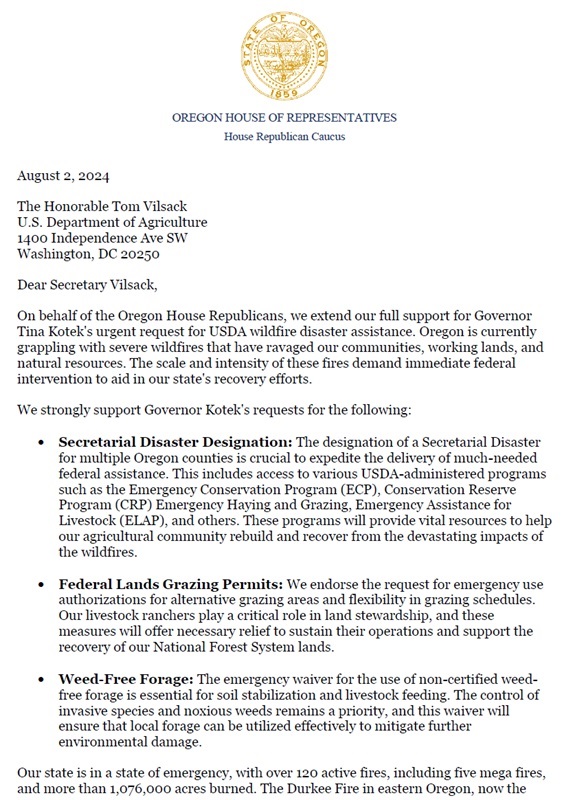
All areas statewide are already eligible to apply for hazard mitigation assistance. Clackamas, Douglas, Jackson, Klamath, Lane, Lincoln, Linn, and Marion counties are currently eligible for the Individual Assistance (IA) program, providing grants for temporary housing and home repairs, low-cost loans for uninsured property losses, and other recovery programs. Survivors can register for disaster assistance by visiting www.DisasterAssistance.gov, calling 800-621-3362, or using the FEMA app.
A D V E R T I S E M E N T

A D V E R T I S E M E N T
Stay informed by calling 211 or visiting wildfire.oregon.gov, which includes the latest information and resources available to those affected by wildfires.
--Donna Bleiler| Post Date: 2024-08-10 12:06:23 | Last Update: 2024-08-10 12:33:28 |
Fueled by failure of two unmanaged homeless camps and lack of attention to taxpayers’ concerns
The unofficial results of a special election held July 30, recalled three Cottage Grove City Councilors, Mike Fleck, Chalice Savage and Alex Dreher. The results are the second attempt by political action committee, Save The Grove, to conduct a recall election.
The group members claim the targeted councilors were not acting in the public’s best interest. The failure of the two unmanaged homeless camps and a perceived lack of attention to taxpayers’ concerns fueled two efforts in the past eight months to recall Cottage Grove city councilors.
Cottage Grove 912 Vice-Chair Chris Wagner commented, "The recall process was used because council actions led to an intolerable homeless situation here in the city where the homeless population exploded leading to a drastic increase in crime and worsening living conditions for residents who live near the new unmanaged camps the city set up. Resident concerns about their situation were ignored by councilors,
who refused to take action to correct the situation or even acknowledge that there was a problem.
"The recall was also based on dubious spending actions the council took, chief one being to spend around $70,000 on a process to hire a new city manager when we already had a capable and willing person on city staff ready to step into the position."
Mike Fleck expressed his disappointment. “The recall process is supposed to be used to remove elected officials that have done something wrong, not for political reasons. That’s what the regular elections are for.” To 27-percent of voters, it was more than political.
Alex Dreher defended her position stating. "The real disappointment is the division this has caused in the community. The chaos of the recall lost us $2 million in homeless services that St. Vincent de Paul was going to bring to our city. If you really want to move people out of homelessness, and prevent people from coming here because we have entirely unmanaged camps, $2 million and some structured programs goes a long way. I am concerned that we will be denied other grants and state money because our own community basically turned this down.
Wagner responded, “This recall process has been active since February 2024 following a failed recall attempt in the fall of 2023. It was ongoing when St. Vincent entered the scene so they were not blind-sided by the recall. It may be added that whatever millions of dollars St Vincent might get to run a homeless shelter in Cottage Grove are going to St. Vincent, not to the residents of Cottage Grove or the city. There is also no guarantee that St. Vincent would not try to import more homeless to Cottage Grove if they felt their shelter had "extra capacity" available.”
A D V E R T I S E M E N T

A D V E R T I S E M E N T
According to the City’s charter, a council vacancy is filled by the three remaining councilors and mayor. The appointee must be a resident of the same ward as the predecessor, unless the predecessor was a Councilor-At-Large. The appointees’ term of office will run to the next general election (Nov 5), at which time a candidate will be elected to serve the remaining term.
Councilor Jon Stinnett remarked, “This recall is not going to save our town because our town does not need saving. Our town needs to come together and bring all available resources and ideas together to find a solution. It’s been the way this community has addressed problems for well over a century. Cottage Grove always rises to meet its challenges.”
--Donna Bleiler| Post Date: 2024-08-05 21:38:46 | Last Update: 2024-08-05 22:12:24 |
Affordable housing development proposes one answer for housing crisis
Oregon Governor Tina Kotek's answer to affordable housing is encompassed in a 6-acre 87 home new development in Medford called
New Spirit Village. The new housing development had its grand opening dedicated to fire-victim families in Southern Oregon.
New Spirit Village is a creative re-thinking on the development of affordable housing. The development is the vision of the Thalden Foundation to help wildfire victims get out of hotels and campgrounds. “While this one project of 87 homes will not solve the housing crisis in the U S, or even in Southern Oregon, it can serve as a prototype for building affordable communities because it encompasses so much more than just a new building type. Rather, it is a whole new approach that creates the opportunity for a way out of multi-generational poverty.”
Governor Kotek said, “My administration is laser focused on our state’s housing crisis because we know that having safe, affordable housing is the foundation for Oregonians building healthy and full lives. Part of the solution must include permanent housing for Oregonians who lost their homes because of wildfires. The innovative approach taken here at New Spirit Village represents exactly the kind of creative thinking and community-mindedness that we need to tackle a challenge of this magnitude.”
After the 2020 Almeda Wildfire, Kathryn and Barry Thalden dedicated a significant portion of The Thalden Foundation funds to the construction of New Spirit Village, and more than 20 community service organizations joined in the planning and development. Funding for the project included a State of Oregon LIFT Grant of $4,300,000, as well as private funds from United Way, PacificCorp Foundation, and the Oregon Community Foundation.
A D V E R T I S E M E N T

A D V E R T I S E M E N T
Construction at New Spirit Village began in March 2024, and once complete, will have 87 single family one, two, and three-bedroom homes. The price of homes will be below $195,000 for a one-bedroom and below $249,000 for a three-bedroom in an area where the average home price is $463,000.
The village is within two blocks of shopping, including drug store and grocery stores, and is one block from bus transportation. The cobble stone drive through goes up to front doors for high-density housing. Immediately next to the site is the 8-acre Lewis Park, with its walking trails, wooded creek, and athletic field and courts.
--Donna Bleiler| Post Date: 2024-08-03 12:53:47 | Last Update: 2024-08-01 22:10:54 |
Establishes structure for management of and participation in the Oregon Main Street Network
Oregon Parks and Recreation Department (OPRD) is seeking public comment on proposed updates to the Oregon Main Street Network rule to include Oregon Main Street. (
OAR 736-056-0000 through 736-056-0080).
Downtowns are traditionally the heart of a community – the social, economic, and civic center. Many of our downtowns in Oregon are “diamonds in the rough" that need a little polishing to sparkle once again. Others are vibrant and want to maintain their competitive advantage. Oregon Main Street Revitalization Grant Program and funding was passed by the Oregon legislature in 2015, but never added to or made a part of ORS chapter 390 (
ORS 390.262 and 390.264). The program intends to help communities wherever they are in their downtown revitalization efforts.
What is most noticeable is the proposed rules may be in violation of the U.S. Supreme Court’s overturning Chevron U.S.A., Inc. v. Natural Resources Defense Council (1984), allowing agencies to exercise significant discretion in interpreting laws, while courts played a limited role in reviewing those interpretations.
The proposed rules implements the Main Street Approach™ trademarked and managed by Main Street America, a third party, national nonprofit that isn’t mentioned in the enabling statute. Oregon Parks and Recreation Department holds an annual agreement with Main Street America to be the official statewide coordinating program, also not mentioned in the enabling statute.
Oregon Main Street provides training and technical assistance to communities participating in the Main Street Track of the Oregon Main Street Network and allows for access to the Oregon Main Street Revitalization Grant which funds building improvement projects that spur economic development for all Network communities (available once per biennium in odd years).
The proposed rule will include parameters for participation in the Oregon Main Street Network, describe how resources will be provided to participating organizations and establish primary structure for management of and participation in the Oregon Main Street Network. The proposed rules provides for representation, but lacks a requirement that participants must live or operate in the greater main street area.
Communities with population over 5,000 are obligated to hire a full-time executive managerial position or part-time if less in order to qualify for the program and a grant. How long will a grant pay for that position before taxpayers are obligated?
A D V E R T I S E M E N T

A D V E R T I S E M E N T
OPRD is accepting comments until 5 p.m. August 31, 2024, and they can be made
online, at a public hearing, in writing or via email: D.Publiccomment@oprd.oregon.gov or OPRD.Publiccomment@oprd.oregon.gov.
Mail: OPRD, attn: Helena Kesch, 725 Summer St NE, Suite C, Salem OR 97301
Virtual Public Hearing: 1 p.m. August 26th. Must
register in advance to receive conference link.
Individuals who require special accommodations for the meeting should contact Helena Kesch at least three days in advance of the meeting at Helena.KESCH@oprd.oregon.gov or 503-881-4637.
--Donna Bleiler| Post Date: 2024-08-02 12:30:54 | Last Update: 2024-08-01 21:15:25 |
OR-04 is becoming a top flip opportunity in the nation
The National Republican Congressional Committee
named Monique DeSpain to their Young Guns Program, recognizing her campaign as one of the best in the country and making OR-04 a key flip opportunity for national Republicans.
“I am honored to be named to the NRCC’s Young Guns Program as one of the nation’s strongest challengers in my campaign to unseat corrupt incumbent career politician Congresswoman Val Hoyle,” stated DeSpain. “Val Hoyle has been a rubber stamp for all the worst policies coming out of Washington, D.C., and is under federal investigation for a pay-to-play scheme in Oregon. Voters are in desperate need of an authentic servant leader who will listen to and represent them with transparency and integrity and enact real and lasting policies that address their top concerns.”

The NRCC’s Young Guns program recognizes a handful of the strongest Republican challenger campaigns in the country. The campaigns selected have met rigorous benchmarks demonstrating strength in campaign organization, fundraising, communications, and grassroots engagement. This past May, the Democratic Congressional Campaign Committee
moved Val Hoyle to its “frontline” list of vulnerable incumbents, a powerful sign of Hoyle’s weakness versus the strong challenge being offered by GOP nominee DeSpain. She has challenged Hoyle to
six debates in six counties in the 4th District, to which Hoyle has so far failed to agree.
The newly redistricted CD4 contains the counties of Lincoln, Benton, Lane, parts of Douglas, Coos and Curry.
“As a retired Air Force Colonel, a fighter for crime victims, and the mother of twin sons, I will pursue bold, commonsense solutions to secure our borders, end the fentanyl crisis, restore an affordable economy, and bring the transparency and accountability to government that voters deserve this November,” added DeSpain.
--Staff Reports| Post Date: 2024-08-01 06:06:51 | Last Update: 2024-07-29 13:29:11 |
“A breach of their right to not have law enforcement rifle through their personal information in search of a crime”
A lawsuit has been filed by Oregon plaintiffs in federal court against the federal government, naming Treasury Secretary Janet Yellen regarding the constitutionality of the
Corporate Transparency Act. The plaintiffs are seven Oregon business owners.
According to the
motion for injunction:
Buried deep in over 1,500 pages of the National Defense Authorization Act of 2021 ("NDAA") are fifteen pages of regulatory statue call the Corporate Transparency Act The "Sense of Congress" is that the CTA is necessary because "more than 2,000,000 corporations and limited liability companies are being formed under the laws of the States each year" and that most States do not set about to require or collect information about the beneficial owners of such entities. Congress further notes that "malign actors use the types of entities being regulated by the CTA for a litany of criminal activities including "money laundering, the financing of terrorism, proliferation financing, serious tax fraud, human and drug trafficking, counterfeiting, piracy, securities fraud, and acts of foreign corruption."
While there is no dispute that these issues are serious and of genuine concern, rather than make investments into already-existing Federal agencies whose mission is to bring these types of criminals to justice, or make budget allocations to States to address these types of crimes at a local level by helping local law enforcement enforce existing State law, the CTA instead designs a complex statutory and regulatory scheme, replete with eye-popping civil and criminal penalties, which starts from a premise that all businesses subject to the CTA should be and will be suspect of these kinds of criminal activities at the outset of an entity's formation.
The
motion for injunction describes the impact of the
Corporate Transparency Act:
Developed from a premise that all covered entities should be suspected by law enforcement of engaging in the types of criminal activities that Congress seeks to uncover, the finished work product of the CTA will result in a vast database containing the personally identifiable and "sensitive" information of the covered entities subject to the CTA's requirements. This database, which is designed to give law enforcement agencies unfettered access to the information contained therein, will be managed by the United States Department of Treasury's Financial Crimes Enforcement Network.
Such a collection and aggregation of the individualized and "sensitive information of law-abiding Oregonians like Plaintiffs, in furtherance of providing that information for unwarranted law enforcement purposes, is in opposite of the protections afforded Plaintiffs and others under the First, Fourth, Fifth, and Ninth Amendments. The CTA is a serious breach of Plaintiffs' rights to privacy, their right to not have law enforcement rifle through their personal information in search of a crime for which there is otherwise no reasonable suspicion or probable cause to search, and the right of Plaintiffs to not self-incriminate to the government.
For Plaintiffs, challenging the CTA is not merely an exercise of objecting to another government regulation and more red tape on small businesses. While Plaintiffs most certainly will be burdened by the financial cost of compliance, including the financial costs of trying to ensure Plaintiffs have followed ever step to a "T" and do so every single time a change occurs in their covered entity, the financial cost is only one of several burdens. The cost of compliance includes protecting themselves from the actual threat of civil and criminal penalties when there is no due process and no safe harbor in the law. But most problematic is that cost of compliance includes an unwarranted and unreasonable invasion of Plaintiff's privacy and it does so in violation of their civil rights.
The plaintiffs are accepting contributions to offset their legal costs.
--Staff Reports| Post Date: 2024-07-31 06:38:46 | Last Update: 2024-07-30 14:13:15 |
EPA awards Oregon $197M from the federal CPRG program
The United States Environmental Protection Agency (EPA) announced that it has awarded Oregon $197 million from the federal Climate Pollution Reduction Grant (CPRG) program. This is the largest award announced in the Pacific Northwest. The EPA’s CPRG program provides $5 billion in grants to states, local governments, Tribes, and territories to develop and implement ambitious plans for reducing greenhouse gas emissions and other harmful air pollution.
Authorized under Section 60114 of the Inflation Reduction Act, this two-phase program provided $250 million for noncompetitive planning grants and is now announcing approximately $4.6 billion for competitive implementation grants. The CPRG implementation grants are designed to fund measures contained in climate action plans developed under CPRG planning grants.
Governor Kotek said, “Reducing greenhouse gas (GHG) emissions is a critical strategy to mitigate the impacts of climate change. When I was Speaker of the House, I fought for ambitious GHG reduction goals. This investment is not only an affirmation of Oregon’s collective efforts to combat climate change, but a significant down payment on our ability to meet our reduction goals with a statewide approach. I want to thank Oregon’s congressional delegation for their partnership in making this key investment happen.”
“Every community is feeling the impacts of climate change, from heat waves and drought conditions to increased wildfire smoke and severe winter storms. We must act collaboratively to reduce carbon emissions and to address the adverse impacts on people’s health and our economic prosperity,” said EPA Regional Administrator Casey Sixkiller. “Through the Biden Administration’s Inflation Reduction Act, EPA is partnering with states and local communities to make the largest investments ever in green buildings, clean energy transportation, and climate justice, and the State of Oregon continues to lead the way.”
“Governor Kotek and our state agencies have demonstrated outstanding leadership in securing this highly competitive federal grant,” Meredith Connolly, Director of Policy and Strategy for Climate Solutions said. “This level of funding will enable investments in every corner of Oregon, making clean energy solutions more affordable, our air cleaner, and our economy greener. By transitioning to electric cars, buses, trucks, and heat pumps - all powered by renewable energy - we are also increasing our communities’ long-term resilience in the face of rising wildfire threats and extreme heat. Our organization along with many others stand ready to support the state’s implementation to ensure a swift reduction of climate pollution, with a strong focus on benefiting frontline communities and lower-income Oregonians across the state.”
Oregon will use this federal grant to implement the measures identified in
Oregon’s Priority Climate Action Plan. The prioritized measures fall into three categories that are among the largest contributors to Oregon’s GHG emissions: transportation, residential and commercial buildings, and the handling of waste and materials. The workplan lays out 12 critical measures that will accelerate Oregon’s emission reduction efforts for a vibrant environment, for the health of communities across the state, and for a more sustainable future.
To read
Oregon’s Climate Pollution Reduction Implementation Grant Workplan Narrative, priorities fall into three categories:
- Transportation accounts for at least 35% of state emissions. Incentivizing zero-emission vehicles in all classes will achieve significant reductions in GHGs. Co-benefits include improved public health in communities that are nearest to transportation corridors by lowering tailpipe emissions of criteria and toxic air pollutants such as diesel particulate matter. However, the net zero is the measurement only of the exhaust pipe.
- Residential and Commercial Buildings account for about a third of the state’s GHG emissions. Incentives are proposed to improve the efficiency of existing and new buildings, promote the transition to clean equipment and appliances, and increase building weatherization. Co-benefits include improved indoor air quality, including protection from wildfire smoke, and reduced energy cost burdens due to more
efficient homes and buildings.
- Waste and Materials are also major contributors of GHGs. Oregon’s consumption-based emissions inventory (CBEI) identifies 51 MMT CO2e of additional emissions that are not a part of Oregon’s sector-based inventory. Incentives addressing waste and materials focus on some
of the largest emissions categories in the CBEI, including embodied carbon in the built environment and emissions associated with food. Reducing these emissions, along with significant sources of landfill methane, offers multiple co-benefits and will demonstrate for the nation opportunities to address sources that are more difficult, but still necessary, to abate in ways that are responsive to community needs.
A D V E R T I S E M E N T

A D V E R T I S E M E N T
Waste and Material proposals should be of most concern to residence. Fifteen-minute cities are being explored and this proposal focuses on space-efficient housing, embodied carbon and consumption-based emissions of households. A DEQ study found the operational and embodied carbon impacts of extra-small homes (defined as 1149 SF in the study) are reduced by 20 to 40 percent compared to medium-sized homes. Case studies of building reuse where cites embodied GHG emissions reduced 40 to 75 percent in reuse of existing buildings compared to new construction.
Another concern is food waste as the single largest source of methane generation in landfills, accounting for 58% methane generation (EPA). Methane is a powerful greenhouse gas – 28 times as potent as carbon dioxide in trapping heat in the atmosphere. Is this their way of replacing natural foods? No mention was made of developing more trash incinerators that produce electricity. Opened in 1986, Covanta Energy is the backbone of Marion County's waste management system, diverting 90 percent of the county's trash from landfills and putting it to use creating electricity.
Amid the projects of how emission reduction will benefit quality of health, it never compares it to quality of life. It also lacks an evaluation of how and how much emissions are reduced for the cost and effort.
How many programs are long-term needing additional funding when the grant runs out? Oregon is already in a school crsis when school districts used Covid temporary funds to fund regular services and then the money ran out. Is this a repeat?
--Donna Bleiler
| Post Date: 2024-07-29 17:33:04 | Last Update: 2024-07-27 18:57:41 |
Settlement Board allocates $13 million in opioid settlement funds
Oregon is one of 35 state receiving an allocation of $13.08 million out of at least $55 billion awarded to states and localities from opioid-related
lawsuits. by the Opioid Settlement Prevention, Treatment & Recovery Board (Settlement Board) will expand and strengthen the state’s access to substance use disorder treatment and services through opioid treatment programs (OTPs) and jails. The funding was awarded to OHA, which will administer the allocations. The Board’s decision can be viewed in a
recording of its July 10 meeting.
The Board approved Alcohol and Drug Policy Commission (ADPC) recommendations July 10. The allocation, which Oregon Health Authority (OHA) will administer, will improve access to medication for opioid use disorder and treatment services by providing:
Up to $3.9 million to fund:
- Two mobile or non-mobile medication units in Clackamas County serving Oregon City and rural Clackamas County.
- An opioid treatment program or a mobile or non-mobile medication unit in Multnomah County serving the geographic areas of the county with the highest unmet need.
A D V E R T I S E M E N T

A D V E R T I S E M E N T
Up to $9.1 million to fund a total of seven opioid treatment programs or mobile or non-mobile medication units, specifically:
- Two in Northeastern Oregon.
- One in the Mid-Gorge region.
- One in Klamath County.
- Two in underserved coastal areas.
- One in eastern Lane County.
To be eligible for funding, a mobile or non-mobile medication unit or an opioid treatment program must be currently certified by OHA.
Up to $250,000 to Oregon Health & Science University (OHSU) to provide technical assistance to jails and to foster collaboration between opioid treatment providers and jails.
Prior to awarding any funding, OHA must engage the partners listed in the ADPC proposal and provide a proposed timeline and implementation plan to the Board for approval no later than Sept. 1, 2024. The drawback that was evident during the pandemic, when a windfall of funds are used to establish programs, it creates a future tax obligation to continue. School districts are suffering over poor decisions, will this be a repeat of a lesson not learned?
Since July 2021, the State of Oregon has reached agreement on national lawsuits against several companies for their role in the opioid crisis. Through these agreements, nearly $600 million will be awarded to Oregon over the course of 18 years. Settlement funds from opioid manufacturers, distributors and pharmacies are divided between the State of Oregon (45%) and local jurisdictions (55%).
The state’s share is deposited as it becomes available into the Opioid Settlement, Prevention, Treatment and Recovery (OSPTR) Fund. This fund is controlled by the 18-member
OSPTR Board.
Next meeting is August 7, 2024, 10:00 am – 1:00 pm by zoom.
--Donna Bleiler| Post Date: 2024-07-28 16:48:22 | Last Update: 2024-07-27 18:39:19 |
Read More Articles






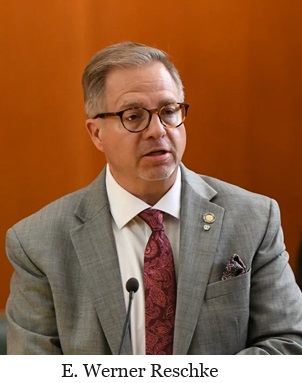


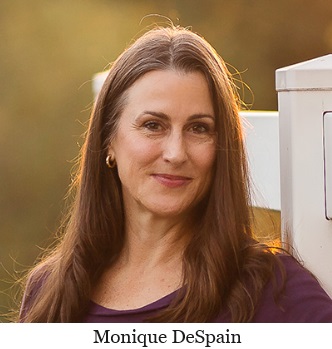

 Widely recognized as a vulnerable Democrat in her reelection campaign, Congresswoman Hoyle has announced that she is skipping the Democratic National Convention later in August in order to remain in Oregon because “Wildfires are getting worse out here and working this is her priority right now.” This statement falls in stark contrast to her signing of an Old Growth Pledge in support of the Biden Administration's plan to further limit the removal of dead trees on federal lands.
Widely recognized as a vulnerable Democrat in her reelection campaign, Congresswoman Hoyle has announced that she is skipping the Democratic National Convention later in August in order to remain in Oregon because “Wildfires are getting worse out here and working this is her priority right now.” This statement falls in stark contrast to her signing of an Old Growth Pledge in support of the Biden Administration's plan to further limit the removal of dead trees on federal lands.














 The NRCC’s Young Guns program recognizes a handful of the strongest Republican challenger campaigns in the country. The campaigns selected have met rigorous benchmarks demonstrating strength in campaign organization, fundraising, communications, and grassroots engagement. This past May, the Democratic Congressional Campaign Committee moved Val Hoyle to its “frontline” list of vulnerable incumbents, a powerful sign of Hoyle’s weakness versus the strong challenge being offered by GOP nominee DeSpain. She has challenged Hoyle to six debates in six counties in the 4th District, to which Hoyle has so far failed to agree.
The NRCC’s Young Guns program recognizes a handful of the strongest Republican challenger campaigns in the country. The campaigns selected have met rigorous benchmarks demonstrating strength in campaign organization, fundraising, communications, and grassroots engagement. This past May, the Democratic Congressional Campaign Committee moved Val Hoyle to its “frontline” list of vulnerable incumbents, a powerful sign of Hoyle’s weakness versus the strong challenge being offered by GOP nominee DeSpain. She has challenged Hoyle to six debates in six counties in the 4th District, to which Hoyle has so far failed to agree.

